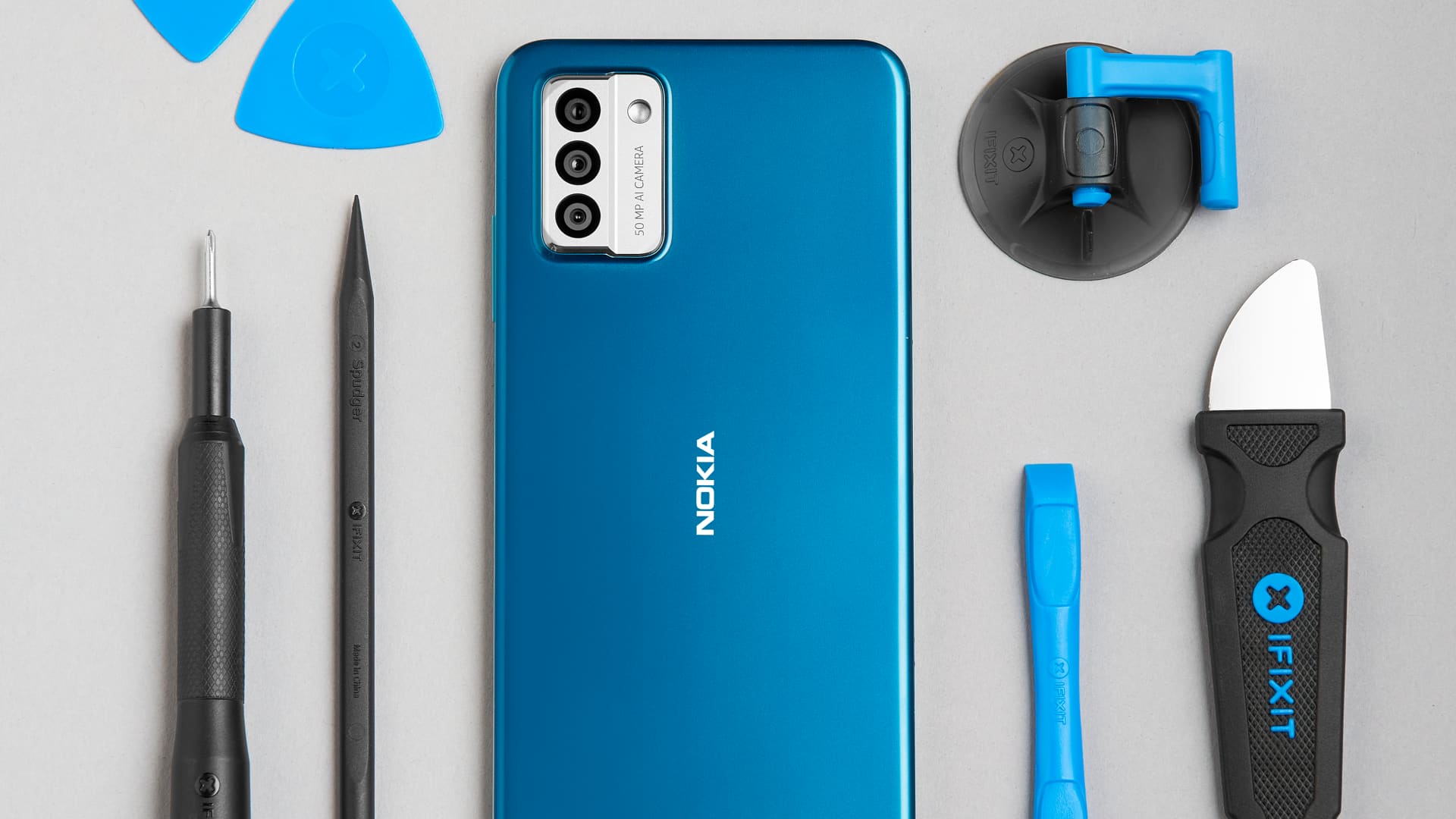[ad_1]
The next smartphone to come from mobile icon Nokia is a handset that users can repair themselves.
The Nokia G22, developed by Finnish manufacturer HMD Global, is a standard smartphone with a 6.5-inch screen and a 50-megapixel main camera.
But it’s the phone’s outer shell and insides that make it special. The handset includes a recyclable plastic back which can be easily removed to swap out broken components.
Armed with tools and repair guides from hardware repair advocacy firm iFixit, a user can remove and replace the phone’s back cover, battery, screen and charging port.
Adam Ferguson, head of product marketing at HMD Global, said that this process would cost on average 30% less than replacing an old phone with a new one.
Smartphone companies are increasingly working to make phones last for longer amid pressure from regulators to make electronics devices more sustainable.
Lawmakers in the European Parliament, for example, are calling for legislation that would force manufacturers to give users the “right to repair.”
Right to repair refers to a movement among consumer rights campaigners to make it easier for consumers to repair their gadgets.
The European Commission’s Green New Deal seeks to make the bloc a so-called circular economy by 2050, making it so that almost all physical goods can be repurposed, repaired, reused or recycled to minimize waste.
Repairing phones, in particular, has gotten more complex due to how tightly the battery and other components are sealed by glue.
Apple, which had long been reluctant to changes its repair policies, decided in November 2021 to launch a self-service repair program that lets customers buy parts to fix their own devices.
In December, the iPhone maker expanded this program to eight European countries, including Belgium, France, Germany, Italy, Poland, Spain, Sweden, and the U.K.
“As consumers increasingly demand more sustainable and longer-lasting devices, the ability to repair smartphones easily and affordably will become a key differentiator in the market,” said Ben Wood, lead analyst at CCS Insight.
Around half of mobile phone owners in Europe would have their device repaired if it broke outside their warrant period, Wood said, citing CSS Insight’s research.
There is one drawback with the Nokia G22 — it only meets the IP52 benchmark on resistance against damaging substances, meaning it is not immune to water damage.
Ferguson said it couldn’t achieve this feature at the phone’s price point.
The G22, which will be released in the U.K. on Mar. 8, starts at a price of £149.99 ($179.19). Replaceable parts can be bought individually from iFixit. For the battery, it’ll cost £22.99; for the display, £44.99, and for the charging port, £18.99.
Ferguson said that, on average, consumers would pay 30% less replacing their broken parts than buying a new phone.
Nokia isn’t the only mobile brand developing climate-conscious smartphones. Dutch firm Fairphone, for example, sells a range of phones that use repairable and replaceable parts.
Once a titan in the handset industry, Nokia has since taken a backseat as electronics giants Samsung and Apple rose to the top of the rankings. The firm is now known mostly for telecoms infrastructure sold to carriers.
Nokia sold its mobile business to Microsoft for 5.4 billion euros ($5.8 billion) in 2014. The unit was later bought by HMD, which was formed by Nokia executives in Finland, for $350 million. Nokia pockets a royalty fee on each phone HMD sells.
HMD said it’s also planning to source more manufacturing of its phones in Europe. The company didn’t specify where, citing security reasons. In a press release, the firm said it was “developing capabilities and processes to bring 5G Nokia device production to Europe in 2023.”
The move highlights an ongoing movement from large tech companies of their supply chains away from China and other East Asian countries.
WATCH: Apple’s new repair policy is a good step for ‘right to repair’ — but it’s a small one
[ad_2]






